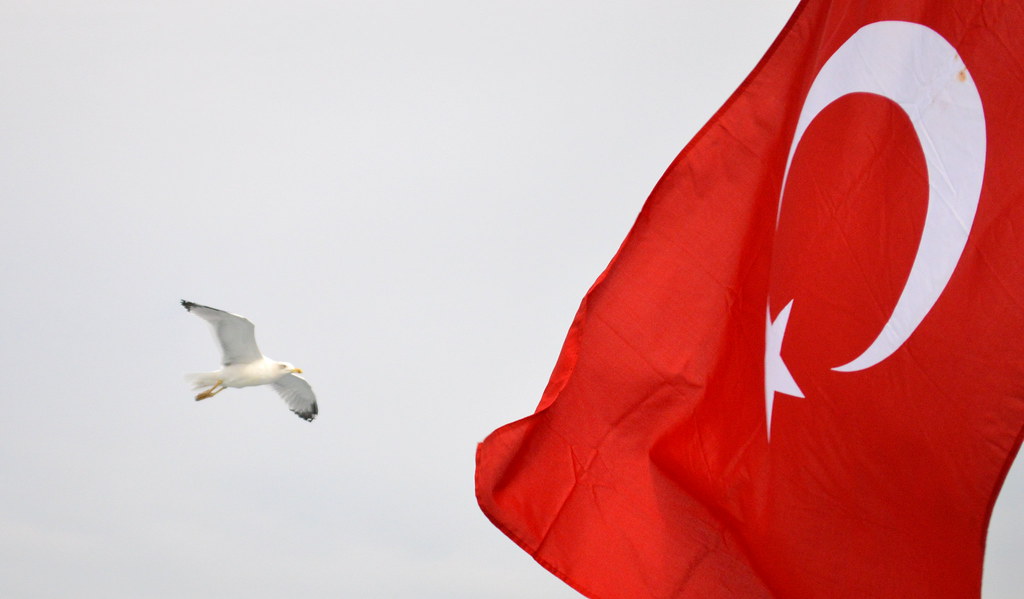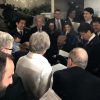How can one write a pre-election comment when there is so much at stake, society has become so polarised and the playing field has been made so clearly uneven? The problem is compounded because the election is too close to call and absolutely critical to the country’s future. The elections of 24 June 2018 –both presidential and parliamentary– are not only of prime importance for the future of Turkish democracy but will also mark the full entry into force of the new constitutional amendments. Following its approval in a highly controversial referendum in April 2017, Turkey will adopt a presidential system of government with very weak checks and balances. According to OSCE ODIHR, ‘the constitution does not fully guarantee the fundamental rights and freedoms that underpin democratic elections and permits legislation to establish further limitations’. Therefore, the upcoming elections are not only about who is to govern the country but also about how it will be governed. With a historic turning point just ahead, the dynamics of Turkish society are being reflected in the electoral contest. Even if the odds are on the incumbent’s side, the race is likely to be far tighter than many expected.
A snapshot of the election scenario
There are many important points in these elections that require a special focus. As argued previously, the snap elections were called at the government’s convenience, with the economy on a declining trend, a very weakened opposition and Turkish nationalism running high after military operations in Syria. Further to its advantage, the recent changes the electoral law that for the first time allow pre-electoral coalitions, the government has managed to compete in the parliamentary election alongside its nationalist junior partner. Initially, the expectation was that a clear-cut victory for the incumbent was the most likely outcome. However, reality has made matters more complex.
As in the case of the constitutional referendum, the country remains under a state of emergency: rallies and public demonstration can be banned and almost all mainstream media outlets are controlled by businesspeople close to the government, thus compromising al, the channels of communication between the politic world and society. Control over the mainstream media provides a powerful multiplying effect to the propaganda of President Erdoğan and his party. This is the main challenge for the opposition: how to reach out to almost half the population if access to the media is clearly restricted.
To complete the picture, it is important to highlight that there have been so many recent changes in electoral law that the public are still not fully aware of how to proceed. First, the new amendments allow the security forces to be stationed very close to the ballot boxes while government-appointed civil servants will monitor the polls and head ballot-box committees. Secondly, local electoral boards will be allowed to move ballot boxes to different districts if they consider there might be a threat to security. That will be the case in the 19 provinces where the population is mostly Kurdish. The measure could affect around 200,000 voters, who will need transport in order to cast their votes. Thirdly, and even more importantly, officials will be able to accept unstamped ballots as valid, a highly contentious issue during the 2017 constitutional referendum.
This third factor has raised the spectre of possible or probable ballot stuffing, combined with the fear of irregularities in mainly Kurdish areas where ballot boxes are likely to be moved, especially after a leaked video showed Erdoğan telling his local party representatives to control HDP voters and deal with the issue from the start. Thus, many civil society organisations are mobilising both to inform the electorate about the new system and to gather volunteers to protect ballot boxes.
Parties and voters
“The key to the opposition’s success will be the HDP overcoming the 10% threshold”
The parties fielding candidates should be analysed separately for the parliamentary and presidential elections. Eight parties will run for seats in parliament: AKP (Justice and Development Party), CHP (Republican People’s Party), HDP (Peoples’ Democratic Party), MHP (Nationalist Movement Party), İYİ (Good Party), SP (Felicity Party), Vatan Party and Free Cause Party. When parliament announced early elections on 20 April following a proposal by the ruling AKP and the MHP, there was no opposition alliance in sight. While the pre-election coalition law was introduced to protect the smaller partner of the AKP-MHP alliance from the 10% threshold rule, it also allowed the opposition to combine in electoral alliances. While the AKP and MHP formed the People’s Alliance, the main opposition group, the CHP, the newly-formed nationalist İYİ and the conservative SP joined together to form the Nation’s Alliance. The three remaining parties will be competing independently. Since the votes of the Vatan Party and the Free Cause Party have historically been less significant, in fact the only political party that will be subject to the threshold rule is the HDP. Thus, the key to the opposition’s success will be the HDP overcoming the 10% threshold. Furthermore, if it garners clearly more than 10% of the vote it could cause the AKP to really struggle to gain a majority in Parliament. With the new system, however, Parliament will have very little control, although it will retain a historically significant symbolic influence.
While that is the scenario for the parliamentary election, the presidential race will involve six candidates. If none gains 50% plus one of the valid votes cast in the first round, a second round will be held for the two leading candidates on 8 July. Selahattin Demirtaş, the HDP candidate has been on pre-trial detention since November 2016. Although Erdoğan still leads the polls, the CHP candidate Muharrem İnce has become a real challenge. Surging way ahead of his party’s usual voting base, he may become a serious second-round contender. Since the CHP is the leading party in the opposition alliance, there is the possibility that opposition votes might coalesce in the second round to dispute the status-quo. Even if the odds –and opinion polls– continue to favour Erdoğan, İnce has shown in a very short time that a serious alternative could be emerging.
On the demand side, there are 56.3 million registered voters according to the Supreme Electoral Council (YSK). In addition, there are more than 3 million voters abroad in 60 countries. External votes will be brought to Turkey without being counted and registered. The number of voters increased by 1.7 million following the constitutional referendum in April 2017, paving the way for many youths to become first-time voters. In total there are around 19 million young voters, which has prompted a response in the political parties’ election campaigns. How they vote will be crucial in both these elections and in the near future. The main feature to highlight, however, is voter polarisation. The country is split down the middle between those who support the government and the status quo and those who want the opposition to implement change. The latter comprise a number of different ideologies and groupings, although they are united for the time being.
Some final remarks
Although many observers are trying to forecast the election result, they are unpredictable, and for two main reasons. The first is very much related to the new phenomenon of a lack of confidence in public opinion polls, aggravated by the heightened fear and polarisation in Turkish society. The second reason is, as mentioned above, the expectation of electoral fraud. Since there is so much at stake, the incumbent is expected to try to hold on to power at any cost, since the AKP has governed the country for the past 16 years. This deep concern demonstrates the need for alternation as a core requirement for democracy in Turkey, as Adam Przeworski would claim. In any democratic country a periodic alternation in government is a healthy development.
Will the democratic resilience of the people of Turkey be powerful enough to achieve this? It will soon be put to the test. Nevertheless, it should be borne in mind that the battle for democracy in Turkey will not be lost or won in these elections. Whoever wins should heal the country’s damaged institutions, re-establish the rule of law and restore basic freedoms. The most positive surprise so far has been how the opposition parties have developed. Even if the status-quo prevails after the elections, the newly-established democratic opposition should lead to a more pluralistic society. Polarisation will remain a very significant problem, but plurality could be the key to a more functionally democratic system. These are undoubtedly critical elections but what is even more critical is the future of such a young and dynamic country.



